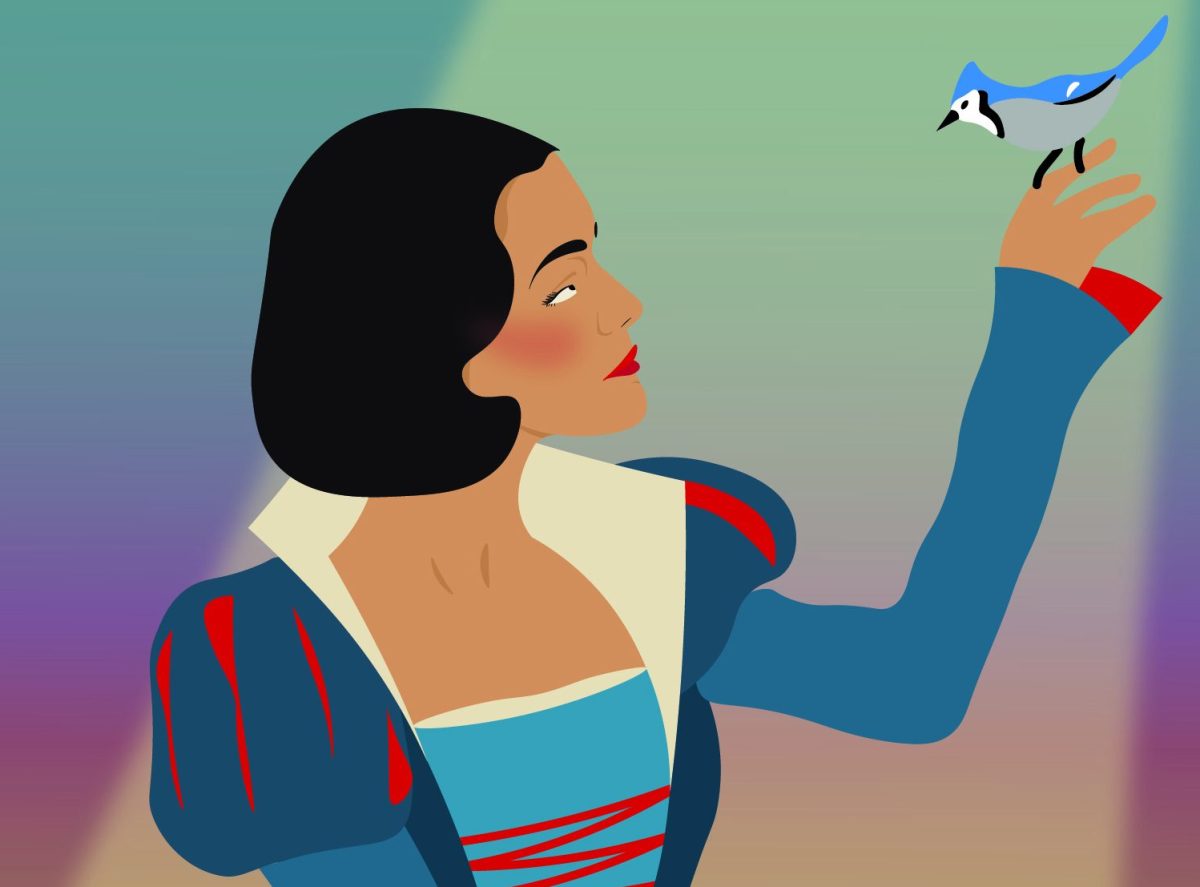“Arrogant.” “Bitter.” “Haughty.” “Talentless.” “B****.”
These are all words that have been used online to describe Golden Globe winner Rachel Zegler. The 23-year-old actress, who starred in films like “West Side Story,” “Snow White” and “The Hunger Games: The Ballad of Songbirds and Snakes,” has been facing harsh criticism and online attacks for almost the entirety of her career.
The reason for the slander? Zegler was simply being herself by supporting those in need and advocating for women during the press tour for her new film, “Snow White.”
Zegler is a Latina woman of Colombian descent; this fact seems to have some influence on the media’s treatment of her.
In January 2018, Steven Spielberg posted an open casting call via X for a new film adaptation of “West Side Story.” Then 16, Zegler responded to the casting call with videos of herself singing “Tonight” and “I Feel Pretty.”
She was selected from over 30,000 applicants for the role of Maria, a role that would mark her film debut. Not only did she land such a coveted part in this huge production, but she also won a Golden Globe for her performance at just 20 years old.
This fact already debunks one of the many hateful words used to describe her. Clearly, she is not talentless.
So why the hate? Much of the bitterness directed at Zegler comes from a mix of sexism, racism and a broader culture of online negativity aimed at young women in Hollywood — especially those who speak their minds.
When male actors assert themselves in interviews, they’re often praised for their confidence and intelligence. When a young woman does the same, she is labeled as arrogant or conceited.
One of the biggest controversies that fueled the backlash was Zegler’s comments during the “Snow White” press tour. She spoke about modernizing the story, emphasizing that this new adaptation would focus more on Snow White’s leadership and independence, rather than her romance with the prince.
These comments were misrepresented, twisted into claims that she was “disrespecting” Disney’s legacy or dismissing the original film.
However, what Zegler actually said was in line with the evolution of storytelling. Hollywood has been modernizing fairy tales for years, making sure that cartoons from decades past align with current values and audiences. Not to mention, every live action Disney princess actress has said the same thing Zegler is being criticized for.
Why does this outcry only seem to happen when young women challenge outdated narratives? Why does a Latina actress speaking about agency and representation face such an overwhelming wave of hostility? Many actors have spoken up about revising older stories to better reflect modern times, yet few have been met with the level of vitriol that Zegler has endured.
Beyond “Snow White,” Zegler has been a vocal advocate for marginalized communities, frequently using her platform to support important causes.
She has spoken out against injustices, defended fellow actors and consistently stood up for herself when faced with online attacks. Instead of being celebrated for using her voice to promote positive change, she is scrutinized and villainized for doing what male actors have done for years without issue.
The treatment of Zegler is proof of a larger issue in Hollywood and social media culture.
Young women, especially women of color, are often subjected to double standards, held to impossible expectations and criticized for simply existing in spaces that weren’t built by them. The hate she receives is unnecessary, unwarranted and deeply revealing of the biases that still infect public discourse.
At just 23, Zegler has already achieved more than most people do in a lifetime.
Instead of tearing her down, maybe it’s time to acknowledge her talent, her drive and her willingness to stand up for what she believes in. If her biggest crime is being outspoken and successful, then perhaps the real issue isn’t with her, but with a culture that continues to fear and punish strong women who refuse to stay silent.
Nicholas Keller is a columnist. Contact him at [email protected].




Beyond Average • Apr 18, 2025 at 5:28 pm
Yes. It was over the top. Exaggerated. Downright personal.
Much in the same way straight white males have been portrayed in popular culture.
Think about it. Awareness will follow.